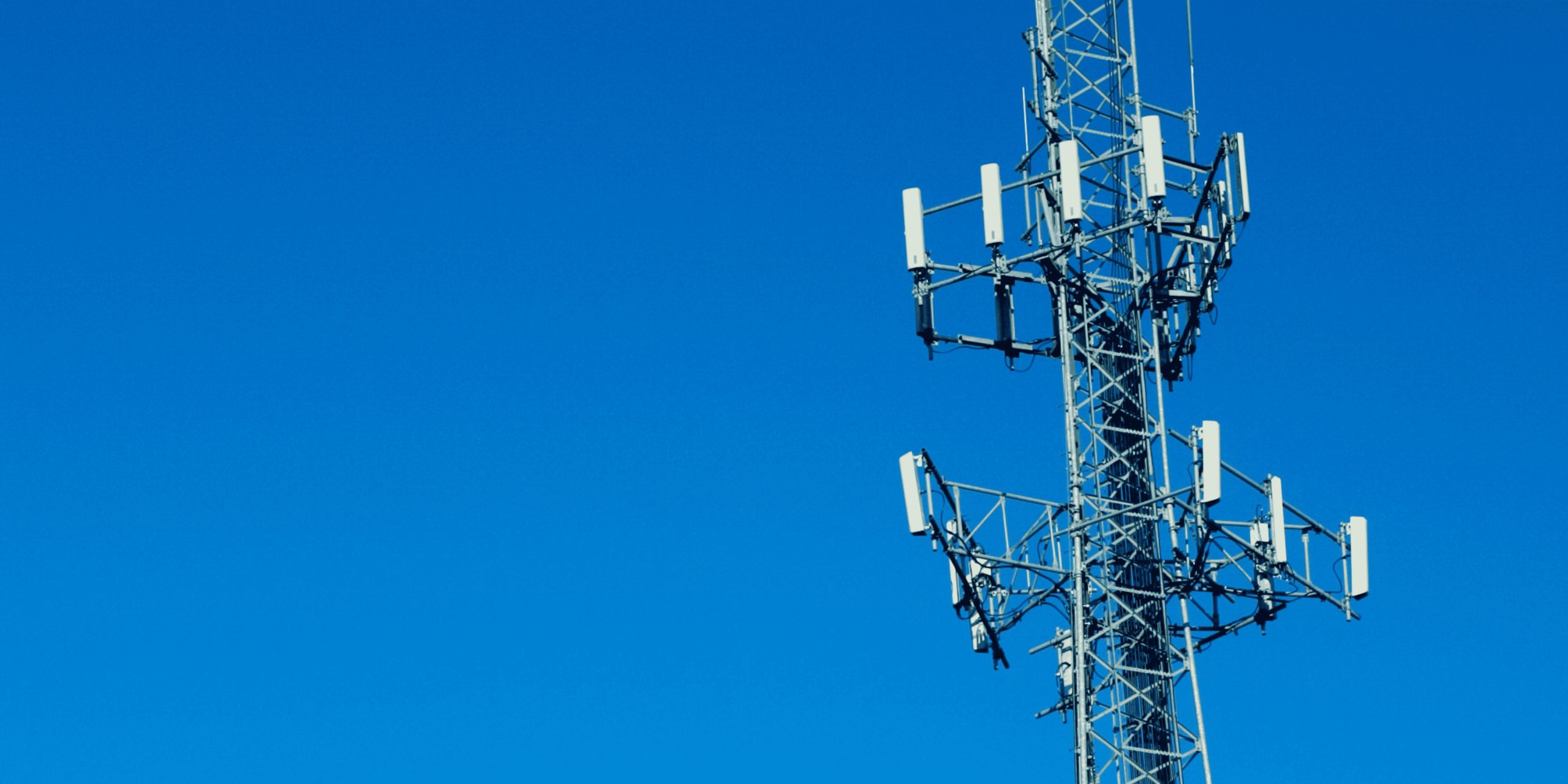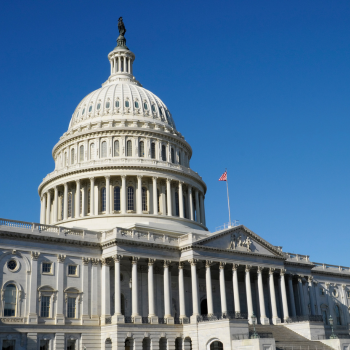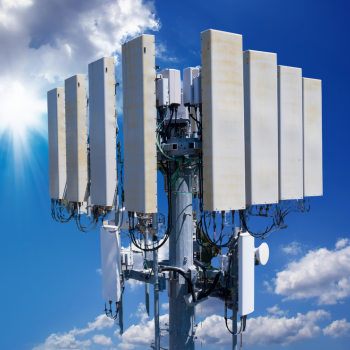THE ISSUE
The FCC is Moving To Strip Local Control and Override Local Laws
The U.S. Federal Communications Commission (FCC) is proposing new rules to speed up the approval of cell towers and wireless equipment in neighborhoods across the country. This comes despite the health and safety risks of close-proximity industrial cell towers.
In the FCC’s Notice of Proposed Rulemaking in Docket No. 25-276 entitled Build America: Eliminating Barriers to Wireless Deployments, the FCC is proposing sweeping new rules that could override local authority and undermine community control over where and how cell towers, small cells, and wireless antennas are built.
If passed, new FCC rules would:
Fast-track Cell Towers: Automatically approving cell towers near homes and schools even with strong community opposition due to strict timelines.
Strip Local Control: Limiting the power of city, state, and county governments to have thoughtful and responsible ordinances, zoning, fees, and permitting rules.
Bypass Public Input: Excluding the voices of those most affected – the people living beside the cell towers.
- 9 Ways the FCC Could Pre-Empt Local Government Control
Key things the FCC is signaling it could do — and is actively asking for public comment on in 25-276:
- Automatic approvals: Missed 150-day shot clocks could result in tower applications being automatically approved (“deemed granted”), eliminating local oversight.
- Redefined aesthetics: The FCC proposes narrowing concealment rules, reducing communities’ ability to require towers to blend into surroundings.
- Limits on zoning authority: Aesthetic and visual-impact conditions could no longer be used to regulate tower height, design, or location.
- Fee caps: The FCC may override local cost-recovery fees that fund safety inspections, notifications, and environmental compliance—shifting costs to taxpayers.
- Setback preemption: Local setback and siting rules are labeled potential “regulatory impediments,” opening the door to federal override.
- No new conditions on renewals: Local governments could be barred from adding conditions when renewing existing tower permits.
- No independent RF testing: FCC preemption could remove community requirements for independent or periodic RF radiation testing.
- Declare that blocking upgrades or densification is an effective prohibition: The FCC would treat any local action that slows network upgrades as an “effective prohibition of service,” even without a coverage gap—reversing the long-standing requirement that carriers prove a gap before overriding local zoning.
- Pre-empt state and local authority regarding AI: In the Notice, the FCC explicitly asks about overriding state and local level AI regulations, and whether local rules ‘prohibit or have the effect of prohibiting wireless services and providers’ ability to use AI tools.
In short, people could lose their say in cell tower approval decisions that directly affect their neighborhoods. Once the FCC proposal is published in the Federal Register, the public and elected officials have 30 days to file comments to the FCC and then 15 days more to reply to comments.
Take Action
Why Communities Are Getting Involved
Across the nation, communities are paying attention to the FCC proposal. People want to have a voice when it comes to cell towers. They are concerned about the decline in property values caused by large, unattractive towers, fire risk, the health effects of cell tower radiation exposure, and the need to preserve the beauty of historic and scenic areas.
Many local governments have already adopted strong ordinances to ensure cell towers are placed responsibly and in alignment with community values. However, these hard-won safeguards could be pre-empted by new rules. By imposing strict “shot clock” deadlines, automatic approvals, and referring to thoughtful local government ordinances as “impediments,” cell tower approvals could be fast-tracked at the expense of transparency and community participation. Our goal is to help communities understand what the proposed rules mean, how the federal rule-making process works, and how everyone, from elected officials to the public, can provide input into this proceeding.
- 9 Ways the FCC Could Pre-Empt Local Government Control
Key things the FCC is signaling it could do — and is actively asking for public comment on in 25-276:
- Automatic approvals: Missed 150-day shot clocks could result in tower applications being automatically approved (“deemed granted”), eliminating local oversight.
- Redefined aesthetics: The FCC proposes narrowing concealment rules, reducing communities’ ability to require towers to blend into surroundings.
- Limits on zoning authority: Aesthetic and visual-impact conditions could no longer be used to regulate tower height, design, or location.
- Fee caps: The FCC may override local cost-recovery fees that fund safety inspections, notifications, and environmental compliance—shifting costs to taxpayers.
- Setback preemption: Local setback and siting rules are labeled potential “regulatory impediments,” opening the door to federal override.
- No new conditions on renewals: Local governments could be barred from adding conditions when renewing existing tower permits.
- No independent RF testing: FCC preemption could remove community requirements for independent or periodic RF radiation testing.
- Declare that blocking upgrades or densification is an effective prohibition: The FCC would treat any local action that slows network upgrades as an “effective prohibition of service,” even without a coverage gap—reversing the long-standing requirement that carriers prove a gap before overriding local zoning.
- Pre-empt state and local authority regarding AI: In the Notice, the FCC explicitly asks about overriding state and local level AI regulations, and whether local rules ‘prohibit or have the effect of prohibiting wireless services and providers’ ability to use AI tools.
Why Your Voice Matters:
To Preserve Local Control:
The FCC could implement rules that force cities and towns to follow short permitting timelines called “shot clocks,” limiting the time they have to properly evaluate cell tower applications. If a city or county doesn’t approve a tower within the 150-day window, it could be automatically approved, no matter what local residents want. The FCC also wants to cap fees, impacting local governments’ ability to be properly compensated for their comprehensive review and administrative costs.
To Defend Democracy
Shortened shot clocks will likely cut the time for public notice and hearings, reducing opportunities for residents to learn about cell tower proposals and to provide meaningful input. This fast-track process would limit the public’s ability to have a meaningful voice in the decision-making process.
To Maintain Property Values
When unsightly cell towers go up very close to homes, property values can drop, with estimates ranging from 5 to 20%. Studies and realtor surveys show that 94% of buyers would pay less or avoid homes near a tower, and properties within cell tower sight lines often take longer to sell.
To Respect Visual Harmony
The FCC refers to aesthetic requirements (like height limits, camouflage, or landscaping ) as potential ”barriers” to wireless expansion. The FCC wants to redefine and narrow what aesthetic and design rules are allowed by local communities.
To Protect Health & Safety
There are numerous health and safety issues related to cell towers near homes and schools. The US has not updated its cell tower radiation exposure limits since 1996, and the U.S. is among the countries that allow the most RF radiation exposure worldwide. Yet, the FCC has referred to local ordinances that distance cell towers from homes and schools as “barriers” and “regulatory impediments.” In 2021, a federal court ordered the FCC to review its outdated 1996 exposure limits and address children’s vulnerability and long-term health effects, but the agency has not responded.
Sign the Petition
Environmental Health Sciences (EHS) is a scientific nonprofit organization focused on environmental health issues. Our Wireless and EMF Program works to create and disseminate knowledge resources that increase understanding of the health and ecological risks posed by wireless and other non-ionizing EMF exposures, counter industry misinformation, promote safer technology, and support meaningful policy change. Sign up for our Wireless and EMF Program newsletter.



